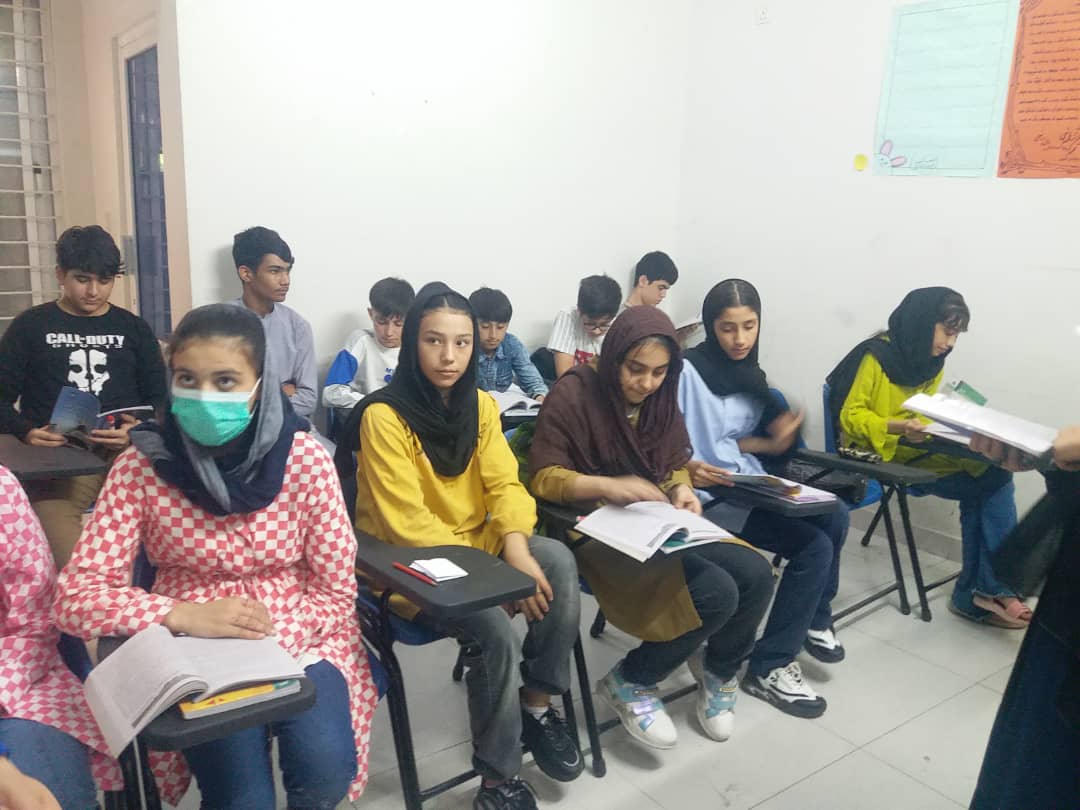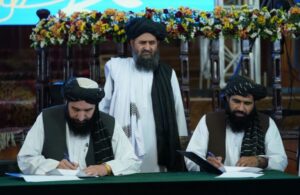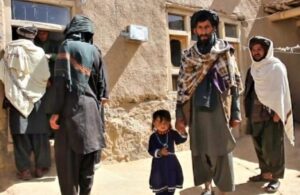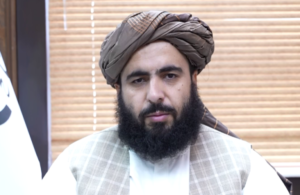ISLAMABAD (SW) – Afghan families, who recently immigrated to Pakistan say that their children are being deprived of education, as they are not permitted to enroll in Pakistan’s public schools.
Following the political changes in Afghanistan in August 2021, many Afghan families sought refuge in neighboring countries, including Pakistan, due to various issues and threats. However, besides grappling with economic, security, and social issues, these families are now encountering obstacles in securing education for their children.
Khatema Rabi, residing in Islamabad, the capital of Pakistan, says that Pakistan’s public schools are not accessible to her children. Additionally, she mentions that financial constraints prevent her from enrolling her children in private schools.
“They do not accept Afghan students in public schools and demand more money in private schools. I cannot pay, I do not have money, and I have financial problems. My eldest child is sick and needs constant treatment and medication. Therefore, I am very worried about the future of my children,” said the mother of eight children.
Raeesa Najib, another Afghan woman, shares her family’s plight, saying that her husband, who worked with foreigners in Afghanistan, and her son, who served in the army, faced threats to their lives, compelling them to seek refuge in Pakistan. However, in addition to various challenges, her children are unable to pursue education in Pakistan.
Mrs. Najib expresses further concerns about economic hardships, adding that the breadwinners of her family engage in strenuous work but struggle to earn enough for rent and household expenses. She emphasizes that with improved economic conditions, she would ensure a better education for her children.
“My children are deprived of education. We do not have enough money here to enroll them in Pakistani universities.”
Raeesa says that they relocated from Afghanistan to Pakistan with the expectations set by the international community. However, their situation has not improved, and she urges the international community to expedite their relocation to the designated countries. In expressing her wishes, Raeesa says, “My desire is for them to relocate us from the third country so that we can survive these problems, and my children can access education.” She adds, “The lives of my sons and daughters, as well as our lives, have been ruined.”
However, amidst these challenges, there are educated women in Pakistan taking the initiative to provide free education to Afghan children. Fereshta Ghaznawi, residing in Islamabad, is one of these women. She says that numerous Afghan children lack access to primary education and end up spending their lives purposelessly at home. To address this issue, she opens the gate of her home to teach these children free of charge.
Nevertheless, educating Afghan children in Pakistan poses challenges even for families with better economic conditions. Fereshta points out those Afghan children attending schools in Pakistan encounter language barriers. She states, “Afghan children do not understand Urdu and English, and Afghans have not come to stay in Pakistan for a long time; they aspire to go to Europe, America, and other countries. There are challenges in the education sector, and I am teaching them to address this issue.”

Additionally, In the B17 area of Islamabad, several other women have come together to provide free education to Afghan children. They operate in a school named “Aftab,” established by an Afghan family residing in America and managed by a woman named Hasina Hashemi.
In the B17 area, former Afghan female teachers and other educated women have joined to provide free education to Afghan children who are not attending regular schools. The school, named Aftab, was established nine months ago and has been functioning smoothly until now. However, Ms. Hashemi expresses concern about the current economic challenges they are facing, which may affect the continuity of education in the school.
She adds that this school was built with a capacity of 90 students, and now 400 students are under the educational coverage of this school. “Our teachers teach the students for free and the students pay nothing,” she says. “This idea came to our mind that we should build a school for children who are left out of education, where our children and other refugee children can study.”
Despite the challenges of immigration, the teachers at the Aftab School remain committed to educating the next generation. Habiba Jami, one of the teachers, emphasizes the importance of mutual support and community efforts in the absence of significant assistance from the Pakistani government.
“We are going through the hard nights and days of immigration. Therefore, we must help each other and educate our children,” she said.
The government of Pakistan has not provided an explanation regarding why Afghan children are not enrolled in public schools. In response to the challenges faced by Afghan families, Qaisar Afridi, the spokesperson for the United Nations High Commissioner for Refugees (UNHCR) in Pakistan, said “The primary obstacle lies in the registration of refugees. Resolving this issue through proper registration would create a path for providing suitable space and support. If the government undertakes the registration of Afghan children, it could lead to solutions for the existing problems in schools.”
According to the statistics released by the government of Pakistan and the United Nations High Commissioner for Refugees, approximately 600,000 Afghan refugees have sought refuge in Pakistan since the beginning of 2021.






